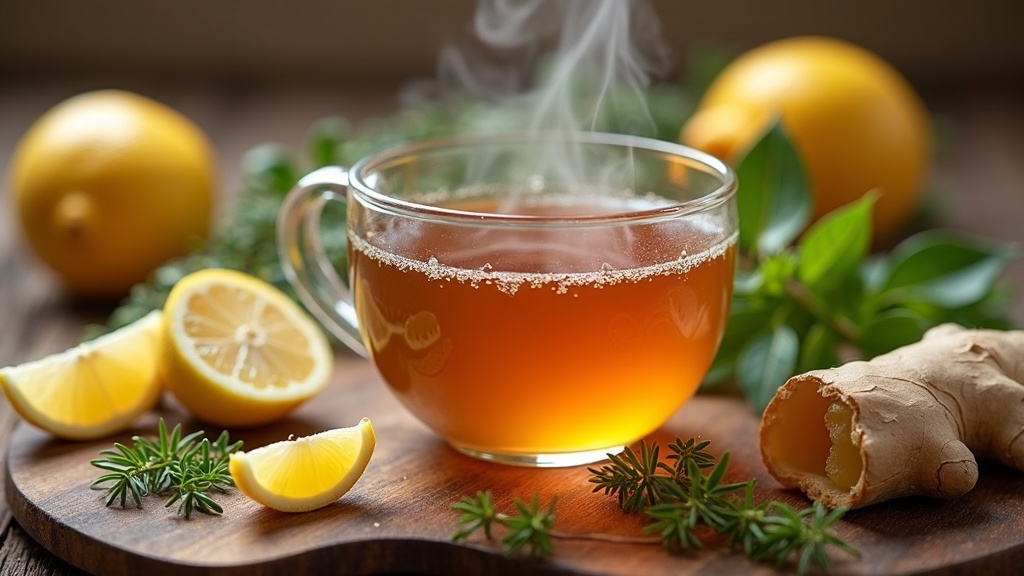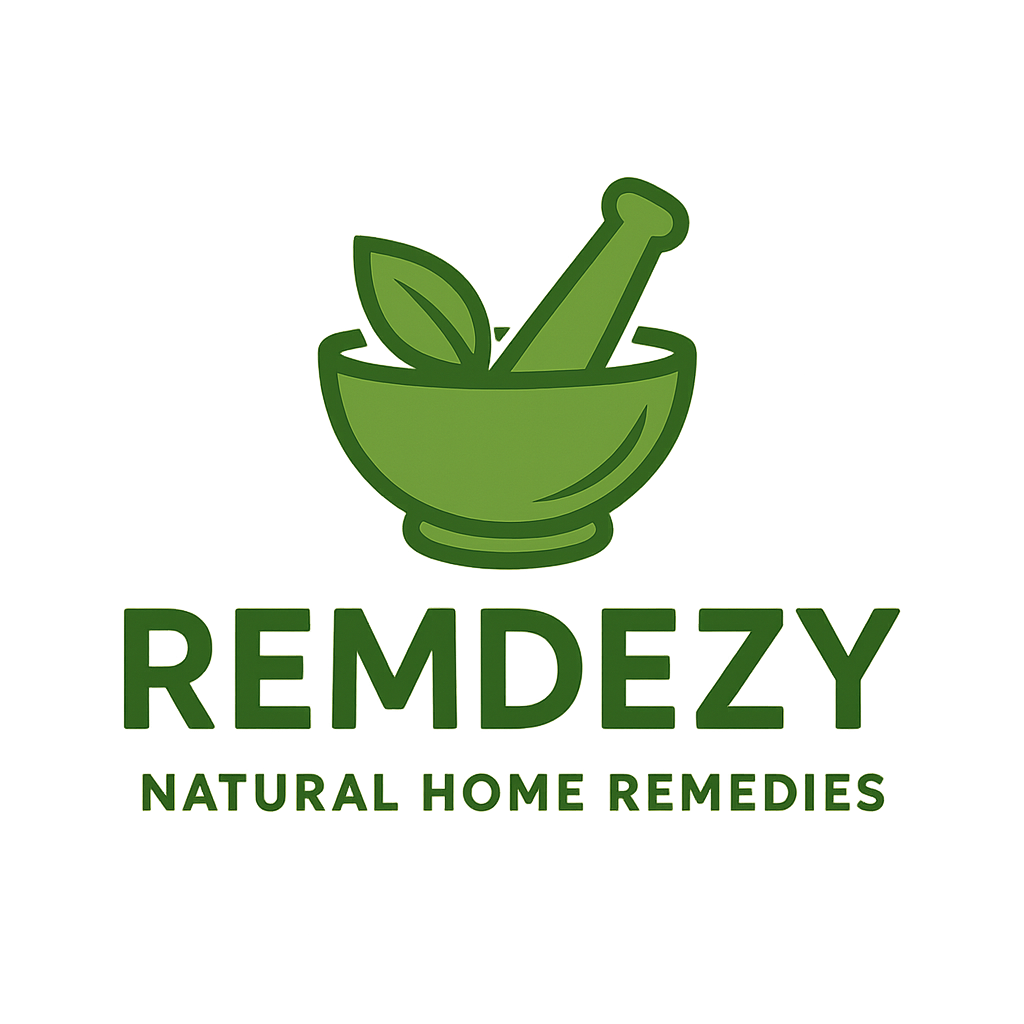If you’re dealing with a scratchy throat, a runny nose, and all the annoying symptoms of a common cold, you’re definitely not alone. Most of us get hit by a cold every now and then, and while there’s no instant cure, there are a bunch of natural remedies that can help you feel better. I’ve tried quite a few over the years, and I’m always surprised by how even simple ingredients can make a bad day a little bit easier.

Understanding the Common Cold and Why Natural Remedies Matter
I get asked a lot if it’s really worth reaching for natural remedies when those symptoms hit. So, here’s how I see it: the common cold is caused by viruses (mainly rhinoviruses), and antibiotics don’t help because those tackle bacteria, not viruses. What you really need is something that gets you through that tired, sneezy phase and supports your body’s own efforts to bounce back. Natural remedies, which usually come from foods, herbs, and home care, are pretty handy because they’re often gentle on your body and easy to use at home.
The idea isn’t to cure the cold overnight; it’s about easing symptoms, like congestion and sore throat, so you can get on with your day. Plus, most natural options are low-risk if you use them properly and don’t have allergies to any ingredients.
Even though natural remedies have been used for generations, not everything will work for everyone. Still, I’m always encouraged by the number of studies and traditional tips that show they can be a real help with cold symptoms.
Easy and Safe Natural Remedies for Cold Symptoms
There’s no shortage of advice out there, but these are the remedies I reach for first, and they’re all super simple to put together, even when you’re not feeling your best.
- Hot Herbal Teas: Chamomile, ginger, and peppermint teas are classics for colds. I find ginger tea with honey and lemon to be both soothing and helpful for a scratchy throat. These teas keep you hydrated and can help break up congestion.
- Honey: Honey is way more than just a sweet treat. A spoonful can coat and calm your throat, and there’s research showing it even helps reduce coughing, especially at night. I usually mix a teaspoon in warm tea or hot water with lemon.
- Steam Inhalation: Filling a bowl with hot water and leaning over it with a towel over your head lets you breathe in the steam, which eases nasal stuffiness. Sometimes I’ll drop in a little eucalyptus oil, but that part is totally optional.
- Saltwater Gargle: If you’ve got a sore throat, mixing half a teaspoon of salt in a glass of warm water and gargling a few times a day can help reduce irritation and kill some of the germs in your throat.
- Chicken Soup: There’s something to the old advice about chicken soup. It helps you stay hydrated, and the warmth eases congestion. The veggies and broth are easy to eat when your appetite is down, too.
- Rest and Hydration: These aren’t exactly “remedies,” but I can’t say enough how important they are. Your body needs more fluids to deal with the virus, and sleep helps you recover faster.
Building Your Natural Cold Remedy Kit
I don’t keep a whole pharmacy at home, but I do make sure I’ve got a few key items in the kitchen so I’m ready when cold season hits. Here’s what I usually have on hand:
- Lemons and fresh ginger
- Raw honey (local, if I can find it)
- Sea salt or regular table salt
- Herbal teas (I stock up each fall)
- Garlic (it’s great in food and also has immune-supporting properties)
- A small bottle of eucalyptus oil for steam inhalation
With these basics, I can usually pull together a quick home remedy even on rough mornings. It saves me the trouble of running to the pharmacy if I wake up sneezing.
Practical Tips for Getting the Most Out of Home Remedies
- Stay Consistent: I find that remedies like honey or steam inhalations work best if I use them a couple of times a day; don’t wait until things are really miserable.
- Use Clean, Fresh Ingredients: Herbs, honey, and lemons are most effective when fresh, and it’s just safer.
- Adjust to Your Taste: If you can’t stand ginger tea, peppermint is also soothing. Try different teas and see which one helps you most.
- Don’t Go Overboard: Even natural ingredients have limits—using excessive honey, for example, isn’t better. Just a spoonful is plenty.
- Pair Remedies with Good Self Care: Eating nourishing foods, keeping warm, and taking it easy all help the remedies work their best.
Common Issues (and How to Troubleshoot Them)
Just like any approach, natural remedies have their quirks. Here are some things that can trip you up, along with ways to handle them:
- Not Seeing Results Quickly: Most natural remedies ease symptoms rather than cure the cold itself. If you’re patient and use them regularly, they’ll usually help over a few days.
- Allergies or Sensitivities: If you’re sensitive to things like honey or certain herbs, try swapping ingredients. Children under 1 year old shouldn’t have honey either.
- Trouble Staying Well Hydrated: Sometimes, sore throats or congestion make drinking tough. I keep a thermos of warm herbal tea nearby and sip it throughout the day, which makes hydration way easier.
- Worsening Symptoms: If anything feels off, like trouble breathing, a high fever that sticks around, or you’re not getting better after a week, don’t just tough it out with home remedies. Checking in with your healthcare provider is really important.
Honey (What to Watch For)
Honey is great for soothing a sore throat, but just remember not to give it to babies under 12 months because there’s a risk of infant botulism. For adults and older kids, though, it’s usually safe (and tasty) in moderation.
Hydration Can Be Tricky
If you aren’t feeling thirsty, try broths or watered-down fruit juices. Electrolyte drinks can also be handy if you’re sweating a lot or have a fever.
Steam Inhalation Safety
When steaming, always use a bowl on a stable surface, and don’t lean in so close that you risk a burn. It’s meant to comfort you, not add new problems.
Stepping Up: Immune Boosters and Advanced Natural Tips
I’m always on the lookout for ways to help my body fight off future colds, so I use these tips throughout the year, not just when I’m already sick. Staying one step ahead really makes all the difference.
Boost Vitamin C Intake: Foods like oranges, red bell peppers, and strawberries are loaded with vitamin C, which supports immune health. I find adding an orange to breakfast or snacking on berries helps keep me feeling good.
Add Probiotics: Probiotic-rich foods (like yogurt and fermented veggies) are super useful for supporting your body’s natural defenses. I started adding a small bowl of yogurt with breakfast, and it’s an easy upgrade.
Enjoy Garlic and Onion in Cooking: Both are believed to have antiviral properties. They fit into everyday meals, so I cook with them often, especially in soups.
Keep Stress Down: Your immune system works better when you’re not stressed out all the time. I try to stick with a regular sleep schedule and find time for fresh air, which makes a bigger difference than you might expect.
Support with Zinc: Some research suggests that zinc, found in pumpkin seeds, lentils, and some whole grains, may help with immune function and could shorten cold duration. I like to sprinkle pumpkin seeds onto salads for an easy zinc boost.
Mindful Handwashing: Prevention is always better than chasing remedies after you get sick. Regular handwashing with soap, especially during the cold season, keeps those pesky germs at bay and lessens the chances of spreading illness at home or work.
Frequently Asked Questions About Natural Cold Remedies
Question: Can natural remedies shorten a cold?
Answer: There’s no instant cure for the common cold, but certain home remedies can help ease symptoms and may help you recover a little quicker by supporting your immune system.
Question: Is it safe to use herbal teas while on medication?
Answer: Most are safe, but it’s smart to double-check with your pharmacist or healthcare provider if you’re taking prescription meds, just to be sure there’s no interaction.
Question: When should I see a doctor instead of treating at home?
Answer: If you have trouble breathing, persistent high fever, chest pain, or symptoms that last more than a week, or if you have underlying health issues, it’s definitely worth checking in with a healthcare provider.
What to Keep in Mind Before Trying Any Home Remedy
Natural remedies are popular for a reason, since they’re usually easy to use, affordable, and pretty comforting. Still, I always stick to using ingredients I know are safe for myself and my family, and I don’t skip seeing a doctor if something feels off. Doing a bit of careful research helps you make better decisions and avoid common pitfalls.
With these natural colds remedies in your toolkit, you can feel a little more confident and comfortable next time cold season rolls around. Warm tea, plenty of rest, and a few tried and true home ingredients really add up to a much gentler experience the next time you catch a cold.
